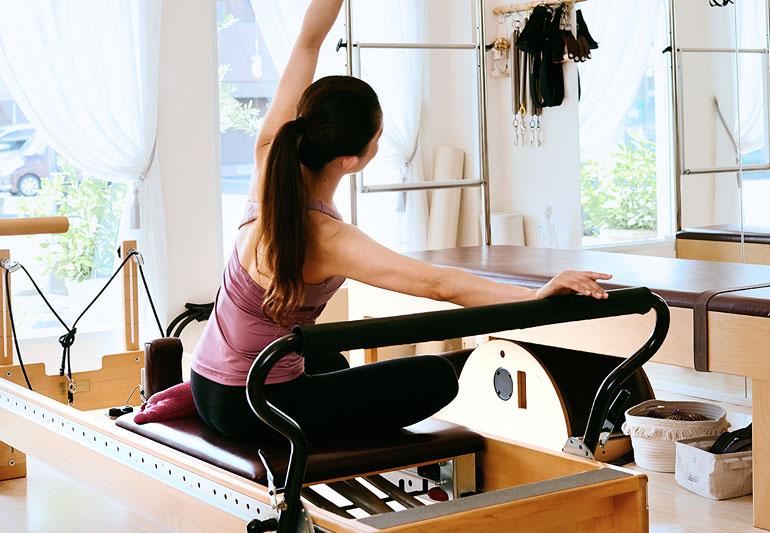In a fast-moving city where long working hours and digital overload are common, stress and anxiety are almost unavoidable. Singaporeans are increasingly turning to mindful forms of exercise that go beyond physical fitness to support emotional wellbeing. One practice that has grown in popularity is pilates singapore, valued not only for its ability to build strength and flexibility but also for its positive impact on mental health.
The Connection Between Mind and Body
Mental health is often thought of as separate from physical health, but the two are deeply linked. When the body is tense, the mind experiences greater stress. When posture collapses, breathing is restricted, and this contributes to feelings of anxiety and fatigue. Pilates works on the principle of mind-body integration. It combines controlled movement with focused breathing, which reduces stress responses and calms the nervous system.
Why Stress is a Growing Issue in Singapore
Singapore’s urban lifestyle has unique stressors. Office workers spend long hours at desks, students face competitive academic environments, and even parents juggle demanding schedules. Stress manifests in both physical and emotional ways. Muscle tightness, shallow breathing, poor sleep, and constant worry are common experiences. Pilates provides a structured way to address these challenges by restoring balance through mindful exercise.
How Pilates Reduces Stress
Pilates is not a high-intensity workout that depletes energy. Instead, it recharges the body and mind by focusing on control, precision, and rhythm. Stress reduction through Pilates comes from several mechanisms:
-
Deep Breathing: Every movement in Pilates is supported by intentional breath. This activates the parasympathetic nervous system, lowering stress hormones like cortisol.
-
Focused Attention: Pilates demands concentration on form and alignment, which helps shift the mind away from worries and into the present moment.
-
Physical Release: Gentle stretches and spinal mobility exercises release stored muscle tension, especially in the back and shoulders.
-
Improved Circulation: Better blood flow delivers oxygen to the brain, supporting clearer thinking and calmer emotions.
Mental Health Benefits of a Regular Pilates Practice
The mental health benefits of Pilates go beyond stress management. Consistent practice brings long-term improvements in emotional stability and resilience.
-
Reduced Anxiety: By teaching the body how to slow down and regulate breath, Pilates naturally eases anxious responses.
-
Better Sleep Quality: A relaxed nervous system leads to deeper, more restorative sleep cycles.
-
Enhanced Mood: Pilates stimulates the release of endorphins, which contribute to feelings of happiness and satisfaction.
-
Greater Confidence: As posture improves, individuals carry themselves with more self-assurance, which positively impacts mental outlook.
-
Sharper Focus: The practice trains concentration, which supports productivity in both work and study environments.
Pilates as a Form of Moving Meditation
Many people describe Pilates as a form of meditation in motion. Unlike sitting meditation, which can feel challenging for those with restless thoughts, Pilates engages the body actively while still calming the mind. Each sequence of movements encourages mindfulness, creating a meditative state through repetition, balance, and breath. This makes Pilates a practical option for Singaporeans who struggle with traditional meditation practices but still seek mental clarity.
How Pilates Supports Different Groups in Singapore
Different groups can benefit from Pilates in ways unique to their lifestyles and challenges:
-
Office Workers: Pilates provides relief from mental fatigue caused by long hours of computer use. Breathing and stretching reduce stress headaches and eye strain.
-
Students: Competitive academic demands create high stress levels. Pilates routines teach mindfulness and relaxation, which improve concentration and exam performance.
-
Seniors: Stress in older adults often comes from health concerns. Pilates helps them regain confidence in their bodies and promotes a positive outlook.
-
Parents: Balancing family and work commitments can be overwhelming. Pilates gives parents a dedicated time to recharge physically and emotionally.
The Science of Pilates and Mental Health
Scientific studies highlight the benefits of Pilates on mental wellbeing. Regular practice has been associated with reductions in stress hormone levels, improved mood regulation, and better cognitive performance. Unlike exercise that relies purely on intensity, Pilates creates a calming physiological response by stimulating the vagus nerve through breath control and core engagement. This directly impacts emotional regulation and resilience.
Incorporating Pilates into Daily Life
Stress management does not happen overnight. It requires consistent effort and sustainable habits. Pilates fits well into daily routines, offering short and effective sessions that can be practised at home or in a studio.
Simple ways to integrate Pilates for stress reduction include:
-
Beginning the day with gentle spine rolls and breathing to set a calm tone.
-
Taking mid-day breaks to practise seated Pilates stretches at the desk.
-
Ending the evening with restorative Pilates exercises to prepare for restful sleep.
-
Combining Pilates with journaling or gratitude practice for deeper emotional release.
The Role of Studios in Supporting Mental Wellness
While practising at home is effective, attending structured classes provides guidance, motivation, and accountability. Studios that focus on holistic wellbeing create an environment where stress relief is as important as physical fitness. Personalised attention also ensures that participants are not just exercising but actively engaging with the deeper benefits of Pilates. One such space is Yoga Edition, which provides supportive Pilates programmes that encourage both physical alignment and mental peace.
FAQ on Pilates for Mental Health and Stress Relief
Q1. Can beginners benefit from Pilates for stress reduction, or do I need prior fitness experience?
Beginners can benefit immediately. Pilates does not require prior fitness experience. The focus on breathing and controlled movements makes it accessible to everyone.
Q2. How often should I practise Pilates to manage stress effectively?
Two to three sessions per week are ideal for noticeable changes in stress levels. Short daily routines of 10–15 minutes can also make a difference.
Q3. Does Pilates help with conditions like depression or chronic anxiety?
While Pilates is not a medical treatment, it can complement professional care by reducing physical tension, improving mood, and encouraging mindfulness. Always consult a healthcare provider for medical guidance.
Q4. Are group classes or private sessions better for stress relief?
Both are effective. Group classes provide social connection, which boosts mood, while private sessions allow customised routines for deeper stress management.
Q5. Can children or teenagers practise Pilates for mental health benefits?
Yes, younger individuals can practise Pilates safely with guidance. It helps them develop self-awareness, reduces exam-related stress, and teaches healthy ways to manage emotions.









